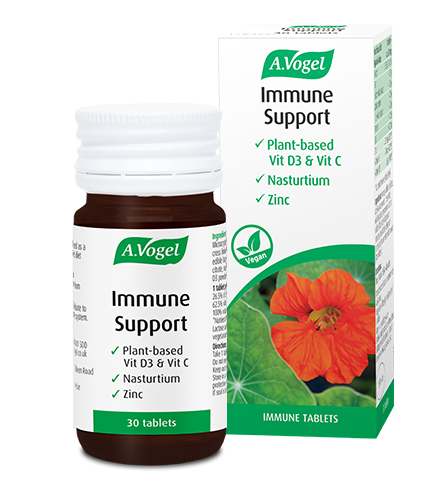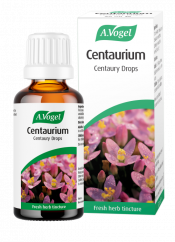What is the digestive system?
The digestive system could be seen as a long tunnel running through us. We are like doughnuts, the body being the doughy bit and the hole being our digestive system; starting at the mouth and ending you know where. That makes the skin and the intestinal wall like our pink, sugary frosting. I have stolen someone else's fantastic analogy but I can't remember who the genius is.
What does it do and why is zinc important?
The intestinal wall needs to acts as a protective layer, but it also needs to be permeable. We need to be able to absorb nutrients from our food through this layer. It also needs to be strong enough to protect us from dangers like infection.
It does this with a gooey mucosal layer that covers the entire wall of the digestive system. Underneath this live our immune cells: 70% or more of our army of immune cells line the intestines. Alongside are a thin layer of cell walls that allow tiny food molecules to pass into the blood stream.
Without the protection of the mucosal barrier, the gut cells would be vulnerable. Many things enter the digestive system and make it past our stomach, where a thick mucosal layer protects us from our own stomach acid. Unfriendly bacteria, parasites and undigested foods that make it into the small intestine can cause damage or infection, resulting in symptoms like diarrhoea. This can obviously affect how well we absorb our nutrients: if it's speeding through the small intestine, food can't be broken down very efficiently. Zinc is very important to this protective mucosal layer1.
Zinc is also important for the production of digestive enzymes. Enzymes are proteins that help to break down our food into smaller molecules that can pass easily into the blood stream. Without zinc, we can't break down our food, especially protein. So, even if we eat nourishing food, we may not see the benefit. Even a short-term deficiency of zinc can affect our production of digestive enzymes2.
So, zinc is super-important to digestive function. Without it, our gut's protective layer can be compromised. This can cause digestive problems that may affect the absorption of nutrients. This may include zinc. So not enough zinc can affect your intake of zinc as well as other nutrients! Now that's a dilly of a pickle. Zinc is also important for a healthy appetite and for our sense of taste and smell.
So, why would you be short of zinc?
A varied and balanced diet should be full of zinc-rich foods. It should be easy to get enough. Remember that the body does not store zinc. You need to get enough every day.
Here are some reasons for a low intake or poor absorption of zinc:
- Poor digestive function will affect the absorption of nutrients. Especially if underlying conditions cause diarrhoea3 . If food speeds through the body too quickly, nutrients can't be extracted efficiently from that food. Protein takes longer to digest and can be particularly affected.
- Medications like proton pump inhibitors and antacids can lower stomach acid. This can affect how well food is broken down. We need good levels of stomach acid to break down proteins and access minerals like zinc.
- Eating on the run affects digestion. Chewing is often the first thing to go, as meals are inhaled and swallowed whole. The stomach then has to deal with great clumps of matter. It's not ideal. In addition, chewing helps alert the stomach to the imminent arrival of food, prompting it to produce stomach acid and digestive enzymes.
- Processed foods and take-outs are often low in nutritional value and may not contain enough zinc. They are often high in fats and salt and low in fibre. These factors contribute to poor digestive function.
- Exclusion diets can be tricky to manage. We all know someone whose idea of a vegan meal is white bread rolls and dairy free chocolate. Although there are many good plant sources of zinc, they may also be rich in phytates. Too many phytates may inhibit the absorption of minerals. Gluten-free diets need to be more than endless bags of long-life baked goods. It can be easier to fall short of some nutrients if the diet is limited to a small group of foods.
- Heavy alcohol consumption can damage the gut barrier. This can increase the chance of digestive problems. Resulting indigestion and diarrhoea will affect zinc absorption.
- Any period of illness can affect the appetite. When stressed or run down, people may eat less or make poor food choices. I tend to not eat when I'm sick but then want nothing but sweeties when in recovery.
So how do I get more zinc in my diet?
Luckily zinc is found in many everyday foods. They do need to be eaten every day, as the body doesn't store zinc. Good food sources of zinc include:
- Shellfish – Oysters, mussels, crab and prawns. Lovely mussels with garlic butter and breadcrumbs. Prawn stir-fry with crunchy veg and brown rice. Crab claw salad on brown soda bread.
- Meat – Beef, pork and chicken. Sunday roasts, chicken curries and Guinness beef stew.
- Wholegrains – Oats, wholegrain wheat and quinoa. Porridge and good brown bread and quinoa, herb and tomato salad.
- Beans, Nuts and seeds – Baked beans, nut burgers, peanut butter and hummus.
Top up your zinc levels
If you feel you need a little extra help to ensure your zinc levels are where they need to be, then try A.Vogel Immune Support.
A.Vogel Immune Support Tablets with Vitamin D, Vitamin C and Zinc, 30 tablets
£13.99 (30 tablets) In Stock
What you said!
In a recent poll we asked what your favourite zinc-rich food is. We've crunched the numbers and here are the results.
Results: What's your favourite zinc-rich food?
The majority of you said that beans, nuts and seeds are your favourite zinc-rich foods. It's great to see that many of you include sources of zinc in your diet as it plays many important roles within the body including being essential for proper function of the immune system.

References:
1https://www.ncbi.nlm.nih.gov/pmc/articles/PMC4231515/
2https://www.sciencedaily.com/releases/2016/06/160609115127.htm






 Looking to support your immune system? Well, look no further!
Looking to support your immune system? Well, look no further!

